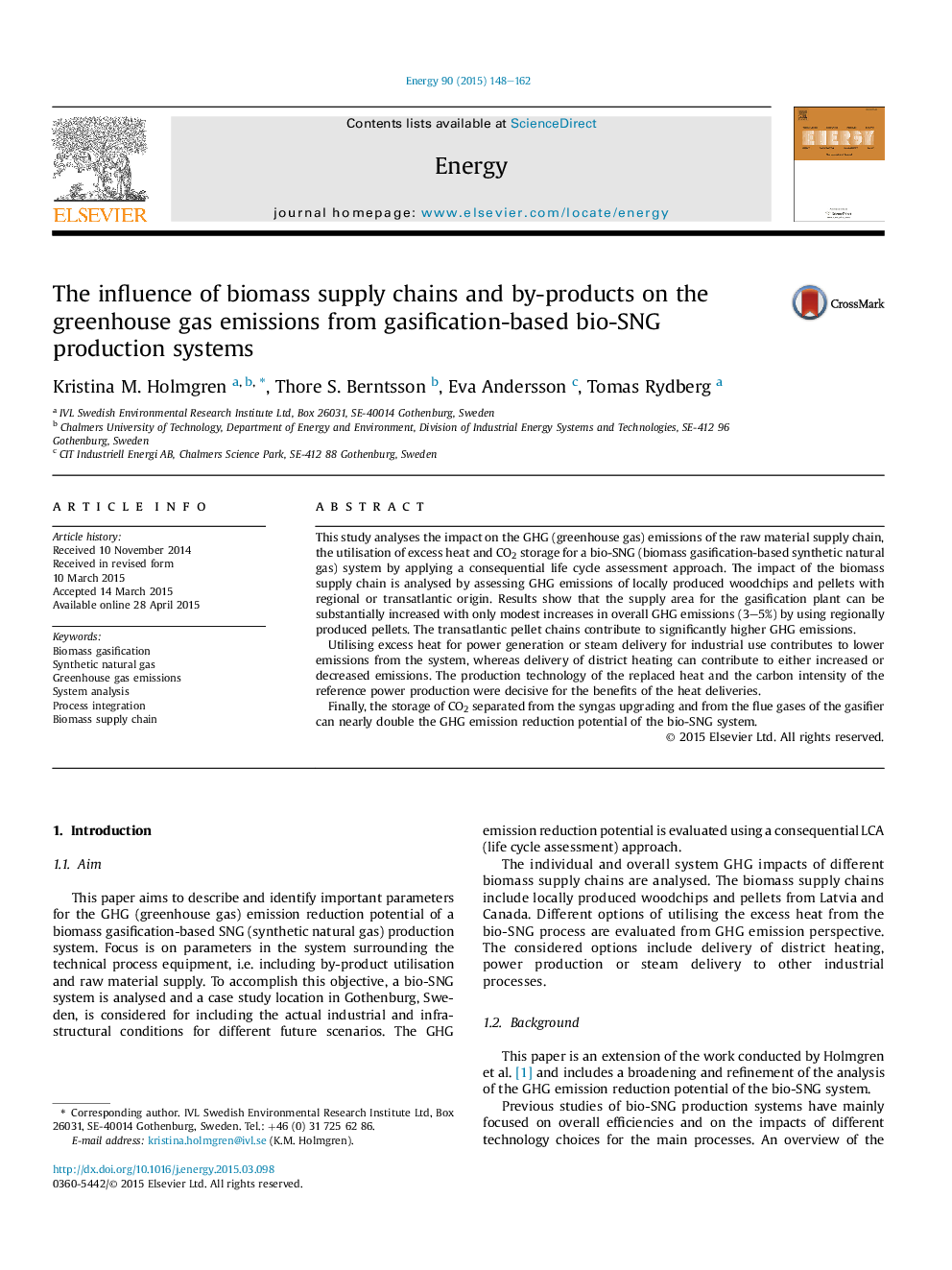| Article ID | Journal | Published Year | Pages | File Type |
|---|---|---|---|---|
| 1731722 | Energy | 2015 | 15 Pages |
•Greenhouse gas emission evaluation of gasification-based bio-SNG system is made.•The impact of biomass supply chains and utilisation of excess heat is in focus.•Locally produced woodchips result in lowest overall greenhouse gas emissions.•Regionally produced pellets have small impact on overall greenhouse gas emissions.•Storing separated CO2 from the bio-SNG process reduces the GHG impact significantly.
This study analyses the impact on the GHG (greenhouse gas) emissions of the raw material supply chain, the utilisation of excess heat and CO2 storage for a bio-SNG (biomass gasification-based synthetic natural gas) system by applying a consequential life cycle assessment approach. The impact of the biomass supply chain is analysed by assessing GHG emissions of locally produced woodchips and pellets with regional or transatlantic origin. Results show that the supply area for the gasification plant can be substantially increased with only modest increases in overall GHG emissions (3–5%) by using regionally produced pellets. The transatlantic pellet chains contribute to significantly higher GHG emissions.Utilising excess heat for power generation or steam delivery for industrial use contributes to lower emissions from the system, whereas delivery of district heating can contribute to either increased or decreased emissions. The production technology of the replaced heat and the carbon intensity of the reference power production were decisive for the benefits of the heat deliveries.Finally, the storage of CO2 separated from the syngas upgrading and from the flue gases of the gasifier can nearly double the GHG emission reduction potential of the bio-SNG system.
